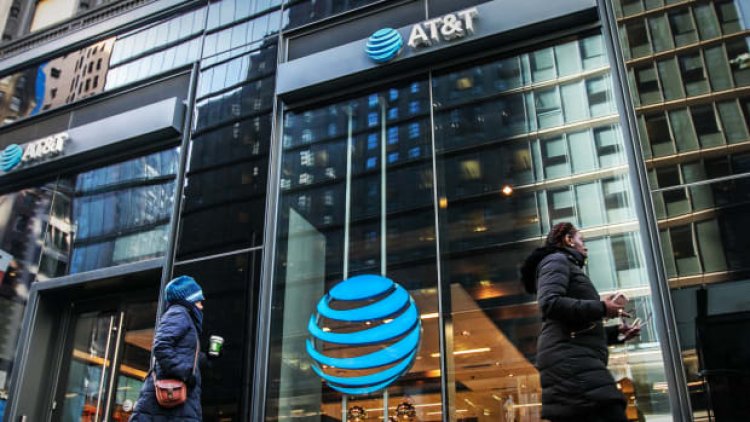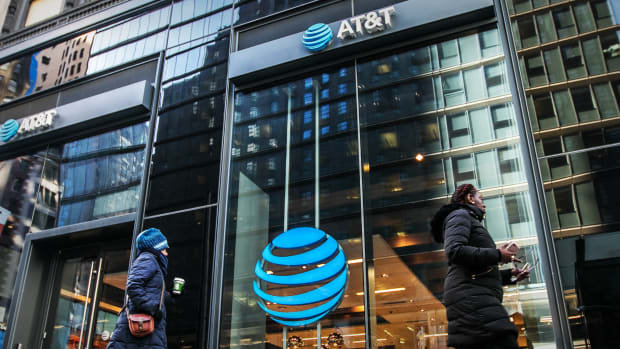AT&T Calls Out Comcast (Really) Over Questionable Ad Claims
In an industry not exactly known for treating customers well or for truth in advertising, AT&T says Comcast has gone too far.

In an industry not exactly known for treating customers well or for truth in advertising, AT&T says Comcast has gone too far.
Claims made in ads often find a way to bend the truth to make a product or service more appealing to consumers.
Lots of industries do this, and while the claims might be silly, they're generally supposed to be true.
NBC, for example, might call "Night Court" Tuesday night's most-watched comedy because that's technically true. But the claim omits a salient point: Only one other comedy -- NBC's "American Auto" -- airs that night.
Sure, the network isn't lying, but its ad makes the show sound as if it's popular, when in reality it's in the middle of the ratings pack when you look at every show that's airing.
DON'T MISS: Comcast 'Customer Service' Leads to Another Scandal
Dubious claims, or at least ones that shade the truth in a way that makes companies look better than they are, have long been part of the wireless-phone business. That's partly because when it comes to wireless networks, there's no standard for claims like "best," "fastest," or 'most reliable."
AT&T (T) - Get Free Report, T-Mobile, and Verizon -- the three unquestioned leaders in the space -- all run ads that pick and choose data from credible surveys to make their products look superior.
Verizon (VZ) - Get Free Report, for example, might claim that it has the most reliable 5G coverage while T-Mobile (TMUS) - Get Free Report may run an ad claiming it has the "best 5G." Both claims are supported by the most recent RootMetrics report, a widely trusted in-depth survey, but neither tells the whole story.
There's a difference, however, between running ads using only the facts that make your product look good and actually making unsubstantiated claims.
Now, AT&T has made a formal complaint about upstart wireless carrier Comcast (CMCSA) - Get Free Report to the National Advertising Division, a branch of the Better Business Bureau designed to help the ad industry self-regulate.
The NAD agreed that Comcast needed to make major changes to its ads, but the cable and internet company has appealed the NAD's decision. Image source: Shutterstock
Here Are the Comcast Claims Being Disputed
When AT&T calls you out over advertising claims, that's a bit like Thanos telling Ultron he's being a bit mean to The Avengers. It's Beyonce telling Taylor Swift to write fewer songs about her personal life or Dick Vitale telling Chris Berman to tone down the player nicknames.
AT&T, despite its own edge-pushing advertising practices, says Comcast has gone too far and filed a complaint with the NAD. The non-governmental agency agreed and said Comcast should make changes to three claims it makes in ads for its wireless phone service:
- Modify claims that its Xfinity Mobile service is the “fastest mobile service”;
- Discontinue its “most reliable,” “highest ranked,” and “best network” claims for Xfinity Mobile; and
- Clearly and conspicuously disclose that an Xfinity Internet subscription is required for Xfinity’s mobile service.
Comcast, which uses the Xfinity Mobile brand, offers cellular service in partnership with Verizon. It's available only to people who subscribe to the company's home internet service, and calls are routed through Comcast's WiFi hotspots and routers when available.
Most of NAD's findings showed that Comcast's first two claims were true on the Xfinity network, but not in other situations. The agency also pushed back on the third issue.
"NAD also considered whether Comcast’s advertising conveys a message that consumers can purchase Xfinity’s mobile service regardless of whether they are Xfinity Internet customers," the agency said.
"As NAD has noted in prior cases, the fact that a cellular service can only be purchased if the consumer also subscribes to a residential internet service is a material limitation that must be disclosed."
Comcast Has Appealed the Decision
The NAD has an appeals process, handled by its National Advertising Review Board, the appellate-level truth-in-advertising body of BBB National Programs. The agency outlined Comcast's objections to its findings:
In its advertiser statement, Comcast stated that it “will appeal NAD’s decision because it believes that the challenged advertising conveys truthful messages about the unique benefits of the Xfinity Mobile service, delivered through the combination of two networks.” Further, the advertiser expressed concern that NAD’s decision is inconsistent with previous cases addressing similar claims and noted its disagreement with certain conclusions made by NAD.
And, while the agency does not comment on the appeals process until it's complete, it did lay out exactly where it thought Comcast was making misleading statements.
"NAD noted that the 'best network' claim is broad and [unqualified,] and because Comcast did not provide any evidence to support the range of superiority messages conveyed by its 'best network' [claim,] NAD recommended that it be discontinued," the agency said.
In addition, the NAD found that Comcast left out some much-needed information when it said it offered the "fastest mobile service."
"NAD concluded that the disclosures in the challenged advertising do not adequately inform consumers of the circumstances under which the 'fastest mobile service' claim is true," according to the BBB division.
NAD "recommended that Comcast modify its advertising to clearly and conspicuously disclose that its 'fastest mobile service' is based on combined WiFi and cellular speeds and that the claim is true only within its WiFi footprint or when connected to WiFi."
What's Your Reaction?


























































